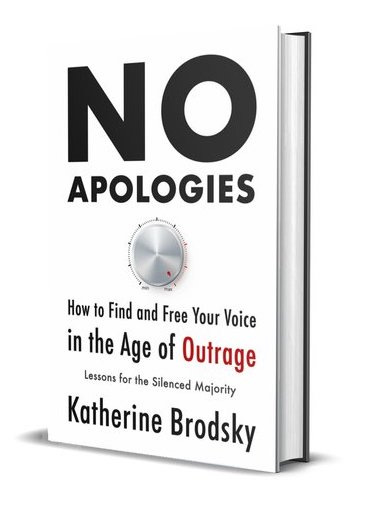Want to think more clearly?

As a writer navigating the dense forest of complex topics, my mind often feels like a tangled jungle of ideas. Achieving clarity for myself first is crucial; without it, I can't present these subjects in a compelling or insightful way.
Whether exploring social issues, philosophical debates, historical events, or the intricacies of a tax credit system, it's essential to distill the material to its most fundamental elements—without losing the nuance that makes each topic rich and engaging...and, well, complex.
That clarity is not always easy, but it's necessary.
To think and write more clearly, here are some strategies that I find invaluable and hope you will too:
1. Simplify.
True mastery of a complex topic means being able to explain it in simple terms. This isn't about dumbing down the content but rather distilling it to its core essence. Simplification highlights the significance of an idea, cutting through the noise to reveal its true meaning.
Muddled arguments and convoluted prose often signal a lack of deep understanding, obscured by a flood of words. Consider interviewers who ask questions so tangled with detours that the interviewee struggles to grasp their point—or what they are asking. It's a symptom of not truly understanding it themselves.
When I’m tackling something relatively complex in a story—like the tax credit system, I break it down to its simplest components.
Early in my career at Variety, I was advised to write for two audiences: the 90% who know little about the topic and the 10% who know more than I possible could in a lifetime, aka “the experts.” I must make the content valuable for both. This has remained a guiding principle for me.
2. Eliminate unnecessary information.
As a naturally verbose writer, I enjoy taking readers on a narrative journey and giving them a sense of how I arrived at my thoughts. However, I always ensure that I can distill my thesis into a few clear sentences. This discipline helps me stay focused and makes my writing more impactful, even when expanded into a longer form.
3. Identify the objective.
Before diving into writing or speaking, ask yourself what you want to achieve. Are you aiming to inform, persuade, entertain, or provoke thought? Get really specific.
Clarifying your objective helps maintain focus and guides the flow of your thoughts, ensuring everything you say supports your main thesis.
Strip away superfluous details to keep your argument or narrative lean and potent.
4. Break it down.
When starting a new piece, the sheer volume of information can be overwhelming. I break down data into manageable segments by putting under categories or themes as I go. This organization helps me see connections more clearly and manage my thoughts effectively.
5. Seek out opposing views.
I hate being wrong if I can help it, and there are steps I can take to increase my odds of being right.
To fortify my arguments, I actively seek intelligent opposing perspectives. This not only helps identify any gaps in my reasoning but also strengthens my position by addressing potential weaknesses. I often present these counterarguments in my writing and address them head-on.
For particularly challenging pieces, I also rely on trusted individuals for feedback, whether it's highlighting gaps or providing new insights. Their perspectives are invaluable in ensuring my arguments align with my intent and are perceived as intended.
—
Incorporating these strategies not only enhances my writing but also sharpens my ability to navigate and dissect complex topics mentally. They transform the overwhelming into the manageable and the intricate into the understandable.
By simplifying, focusing, organizing, and allowing for multiple perspectives, I gain clarity both on the page and in my thought process. And, as they say, “practice makes perfect.” Perhaps it will help you too.
Please share this post if you think it might help others, and feel free to leave your own advice in the comments below.
Order my book, No Apologies: How to Find and Free Your Voice in the Age of Outrage―Lessons for the Silenced Majority —speaking up today is more important than ever.
NOTE TO READERS:
Thank you for keeping me company. Although I try to make many posts public and available for free access, to ensure sustainability and future growth—if you can—please consider becoming a paid subscriber. In addition to supporting my work, it will also give you access to an archive of member-only posts. And if you’re already a paid subscriber, THANK YOU!
☕️ By popular request, you can also support my work by making a one-off donation via Buy Me a Coffee.




You are a superb writer, and this is excellent advice. As I've said before, your prose sizzles. I taught a first-year course in critical thinking and composition for nearly a decade. Some students seemed to have difficulty absorbing and applying the advice I gave them (which was similar to yours). Then I came across this essay: https://wrd.as.uky.edu/sites/default/files/1-Shitty%20First%20Drafts.pdf It had a profound effect on my teaching, and their learning. Sometimes, I don't know what I think until I've seen what I've written...
I enjoy your posts both here and on X. As a fellow writer on Substack, I am always looking at ways to improve my posts and your advise on this topic is excellent- I am going to use these techniques in my future posts. I have a quick question- your principle #5- seek opposing views- What's the best way to seek opposing views? In today's environment, you can always find someone who disagrees with your opinion- but how do you choose/find someone reliable/credible that is worth using in your writing.